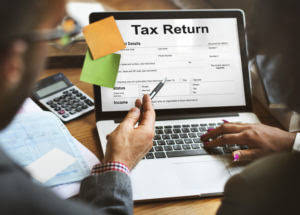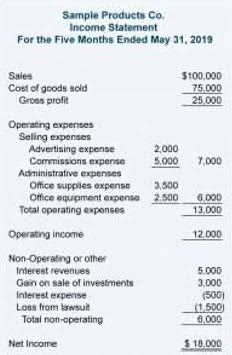Closing a business includes many steps, such as canceling licenses and permits, and sometimes transferring ownership. It’s always best to consult with your accountant during a business transition. As a business owner, you likely have in storage various documents, such as tax returns, personnel records and bank statements. Unfortunately, there isn’t a steadfast retention rule https://www.bookstime.com/ that applies to all kinds of records, meaning you need to categorize your files and create a document retention policy (DRP). Once you know what types of records you have, it’s time to figure out how long to keep tax returns, statements and other documents. Below, we’ll go over legal retention requirements and best practices for records not covered by federal or state laws.
How long should businesses keep records?
- Only some companies can be reinstated to the Companies Register once they’ve been removed.
- Digital systems also enable quick and remote access to information when you need it, streamlining your day-to-day operations.
- Be sure to check the terms of each account to see how long they keep historical records.
- Having solid employee records can really help if an employee takes you to an employment tribunal or civil court.
- There are rules about what you can and cannot claim as expenses on your tax return.
- There are many documents related to payroll and just as many regulations.
These documents should help you establish the date, place, amount and reason for the expense. Remember, the burden of proof for everything on your tax return is on you. It’s your responsibility to be able to prove the expenses that you deduct with adequate records. The main reason to maintain business records is for tax and auditing purposes.
- If you decide not to file a return, you must keep your records indefinitely.
- Whatever record-keeping system you choose — electronic or not — it needs to clearly show your gross income as well as your deductions and credits.
- They’re also targets for lawsuits, even after their operations come to an end.
- Purchases, sales, payroll, and other transactions you have in your business generate supporting documents.
- HM Revenue and Customs (HMRC) may check your records with a compliance check to make sure you’re paying the right amount of tax.
What Other Documents Should You Keep?
Impact on your credit may vary, as credit scores are independently determined by credit bureaus based on a number of factors including the financial decisions you make with other financial services organizations. While you’re keeping things for the IRS, don’t forget about keeping other records that are required for your business. Purchases, sales, payroll, and other transactions you have in your business generate supporting documents. As a general rule of thumb, if you’re wondering if a document is important, it’s a good idea to keep it and/or make a digital copy for your records.
Financial records and audit statements
After reviewing your situation, the CRA will provide to you written permission. To take your employee record management to the next level, download our comprehensive HR software guide or book a demo with us today. Discover how our solutions can help you manage your employee records more efficiently, securely, and in compliance with all regulations. Use secure access controls to ensure that only authorised personnel can view or edit sensitive information. Implement strong passwords, encryption, and two-factor authentication to add layers of security.
- It’s best to check your state’s rules and maintain records for the longest required amount of time.
- You should keep records of income from employee share schemes or share-related benefits.
- To ask for a clearance certificate for GST/HST registrants, fill out Form GST352, Application for Clearance Certificate (under section 270 of the Excise Tax Act), and send it to your tax services office.
- According to a Federal Trade Commission (FTC) report, over 3.2 million consumer reports were filed with the Consumer Sentinel Network in 2019, and 20% of them involved identity theft.
- As changes occur, you must update this information on your own share register and in your company’s annual return.
Why do businesses need to keep financial records?
During this time, the IRS can also request information to assess additional tax or examine any fraudulent activity. If you filed your taxes early for a particular year, the three-year clock starts on the tax due date. When you’re running a small business, you have myriad things to worry about on a daily basis, so keeping detailed records may be the last thing on your mind.
Just because the retention period has passed, it does not mean that the practitioner’s duty to protect the confidentiality of client data has also expired. Regardless of IRS regulations on corporate recordkeeping, it is a good idea to keep and maintain corporate how long to keep company records records for your own usage. Journals and ledgers detailing transactions, purchases and events are an effective means of organization. It’s one of the first things that will be requested should you want to sell your company or be involved in an audit or lawsuit.
- If you received property in a nontaxable exchange, your basis in that property is the same as the basis of the property you gave up, increased by any money you paid.
- Keeping your employee records in check is key to staying compliant, protecting your business, and running things smoothly.
- These documents contain the information you need to record in your books.
- Remember, the burden of proof for everything on your tax return is on you.
- From mail to receipts to documents, it’s a challenge to keep it all organized.




